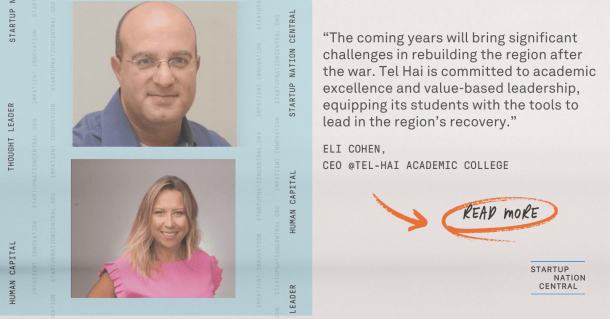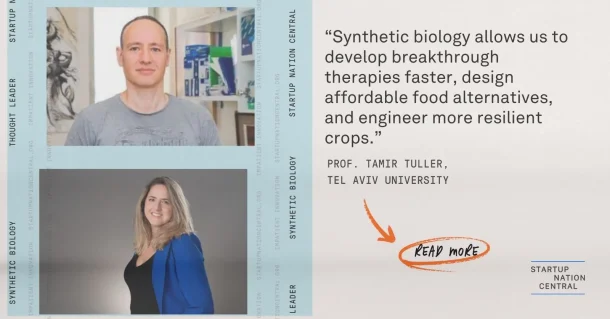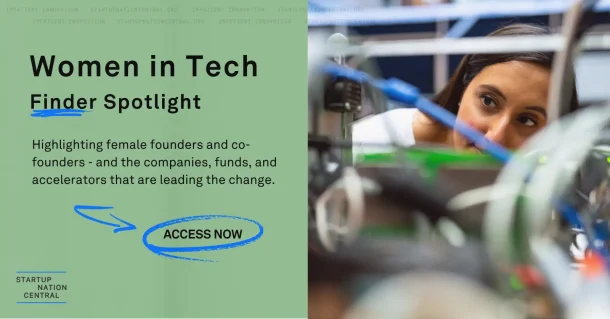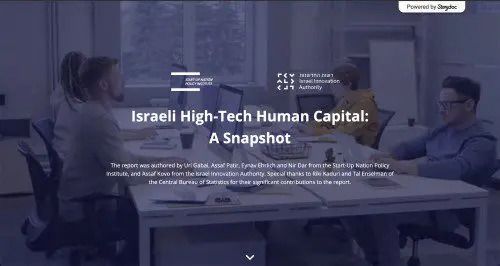By Einat Paz-Frankel, Head of Content, Start-Up Nation Central
The demand for high-tech employees in Israel grew by 8% from July 2018 to July 2019, to an estimated 18,500 open tech positions in the industry. At the same time, there has been an increase in the number of entry-level tech workers, recruited from universities and colleges, but also from alternative training programs such as tech boot camps.
However, there are various indications showing the growth in demand is outpacing the growth of inflow of new recruits, and as a result, the high-tech industry is continuing to experience a shortage of skilled tech employees.
Possible solutions to the shortage of skilled human capital for the industry include the integration of underrepresented populations into the high-tech workforce, which could also strengthen Israel’s economy and social fabric in the long run.
Here are five ways to address Israel’s critical shortage of tech workers:
Include additional women in the high-tech workforce
While women comprise more than 50% of Israel’s population, their share in the high-tech workforce is much lower: 33%. A deeper examination of women’s representation in high-tech roles, based on our survey data, reveals an even more serious situation, with rates dropping to 22% for technology positions and 18% for technology management positions.
Numerous government entities and nonprofit organizations offer various training programs designed to facilitate entry to the high-tech industry, in particular for populations that are currently underrepresented in this sector.
One of these programs is “Women of the Future,” which is supported by Start-Up Nation Central and operated by Scale-Up Velocity. The program has set a goal to increase the number of women in academic engineering and computer science studies as part of a wider move to increase the number of women in technology positions in the high-tech industry. Through conferences and meetups with leading women in the industry, career consulting, and mentoring, the Women of the Future program is creating a conceptual change and encourages women in academic studies relevant to the high-tech industry to join its workforce.
Create alternative high-tech entry channels
In addition to academic training programs, alternative training channels have emerged in recent years, including government-supervised training programs and other programs run by NGOs.
Understanding the need to provide high-quality, scalable solutions for talent development, Start-Up Nation Central initiated the creation of Scale-Up Velocity, a nonprofit organization that specializes in developing innovative models to tackle the shortage in quality human capital.
Scale-Up Velocity operates in close partnership with high-tech companies and provides solutions tailored to the industry’s needs. Key programs have been developed in collaboration with Mobileye, Google, IBM, ExLibris, Lightricks, 40Nuggets, and JP Morgan, focusing on training juniors from underrepresented populations in the industry for development positions in core teams, with an emphasis on practical projects and additional skills required for R&D teams.
Integrate Arab Israelis into tech
Despite the growing number of Arab Israeli employees in the high-tech industry, they still comprise a little over 2% of the tech workforce, much lower than their share of the general employment market.
However, there’s great potential for growth: data shows a significant increase in the number of Arab Israeli students training in high-tech studies at academic institutions. Between 2012 and 2018, the number of undergraduate students enrolled in these majors has more than doubled. In the coming years, a rapid and proper integration of these graduates will be one of the core aspects of reducing the shortage in technological manpower in the high-tech industry.
One of the programs that tackles these challenges is Excellenteam, which is operated by Scale-Up Velocity and supported by Start-Up Nation Central. Another, is Forsatech, a program initiated by the Labor Division at the Ministry of Labor, Social Affairs and Social Services, aimed at integrating and promoting Arab Israelis who graduated from college with tech-related degrees.
Roughly 560 individuals participated in this program, operated by Tsofen and Maof, in 2019. It included six vocational courses for supplementary training, two courses for management cadets (designed for individuals who already work in the high-tech industry), and over 300 job placements.
Empower the ultra-Orthodox to participate in the tech workforce
Despite an increase in recent years, representation of the ultra-Orthodox population in the high-tech industry remains low, standing at approximately 3%. Furthermore, only one-third of ultra-Orthodox employees are in core development positions. The challenge with this population is twofold: increasing the number of employees participating in high-tech, while also integrating them into tech positions with higher salaries.
One of the programs that tackles these challenges is Excellenteam, which is operated by Scale-Up Velocity and supported by Start-Up Nation Central. This training program is aimed at computer science bachelor’s degree graduates and operates through two separate courses, one of which is a track for female graduates from the ultra-Orthodox community.
Throughout the program, students undertake practical experience for a period of four months, in combination with projects within the industry. The first cycle of the program concluded in February 2019, with 88% of its graduates placed in high-tech development positions with high starting salaries. Dozens more students will be trained in the program in 2020-2021.
Train and hire juniors
The key to solving the employee shortage is to increase the supply of employees, first and foremost by training more technology workers. One of the most promising avenues for integration at the junior level is for students to start working in high tech while they are still in school. Start-Up Nation Central data shows that 58% of these high-tech students are hired by the same company upon graduation.
To learn more about the shortage of skilled tech workers, download our 2019 High-Tech Human Capital Report.


 Tech Ecosystem
Tech Ecosystem Human Capital
Human Capital Focus Sector
Focus Sector The Health Network
The Health Network
 Business Opportunities
Business Opportunities Investment in Israel
Investment in Israel Innovation Diplomacy
Innovation Diplomacy Leadership Circle
Leadership Circle














